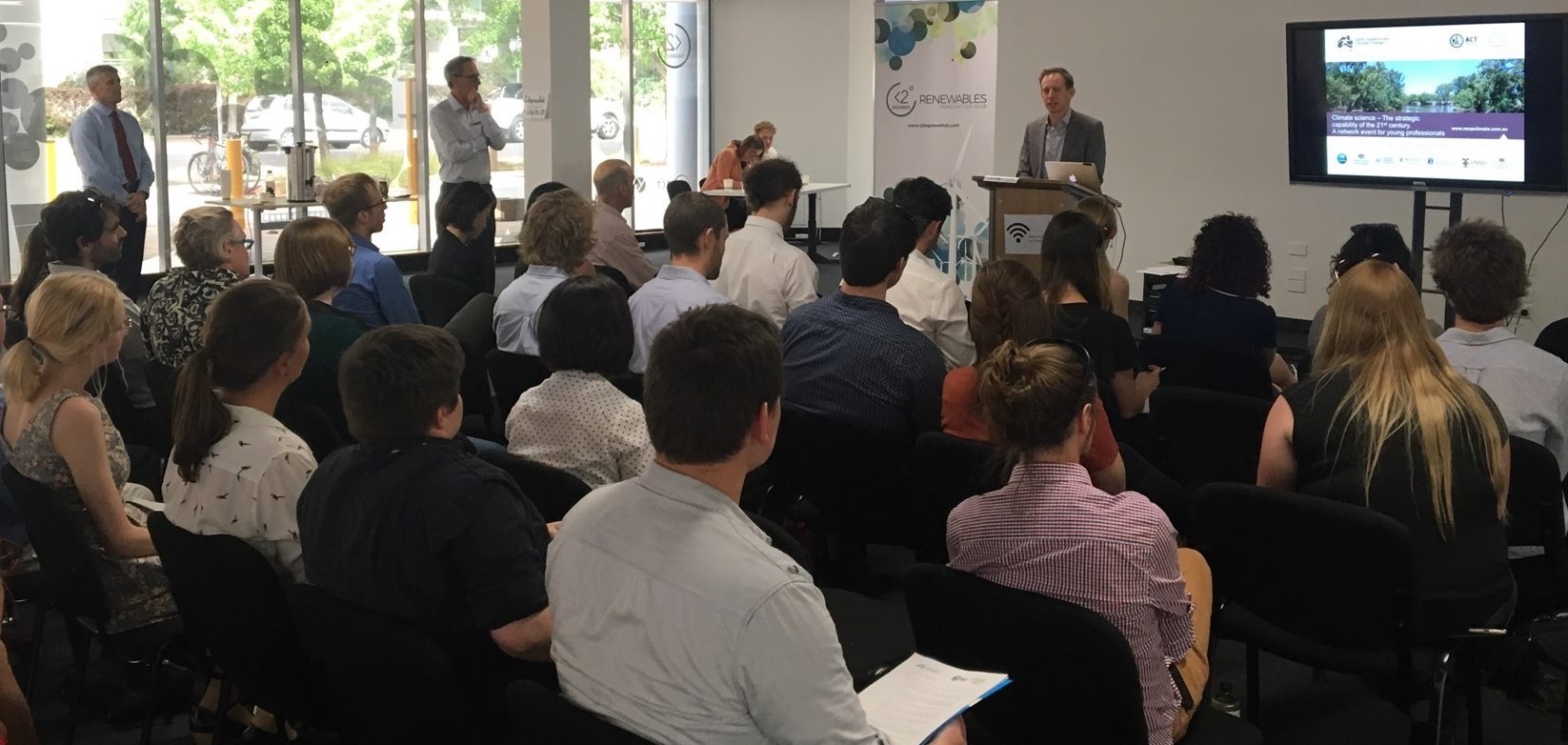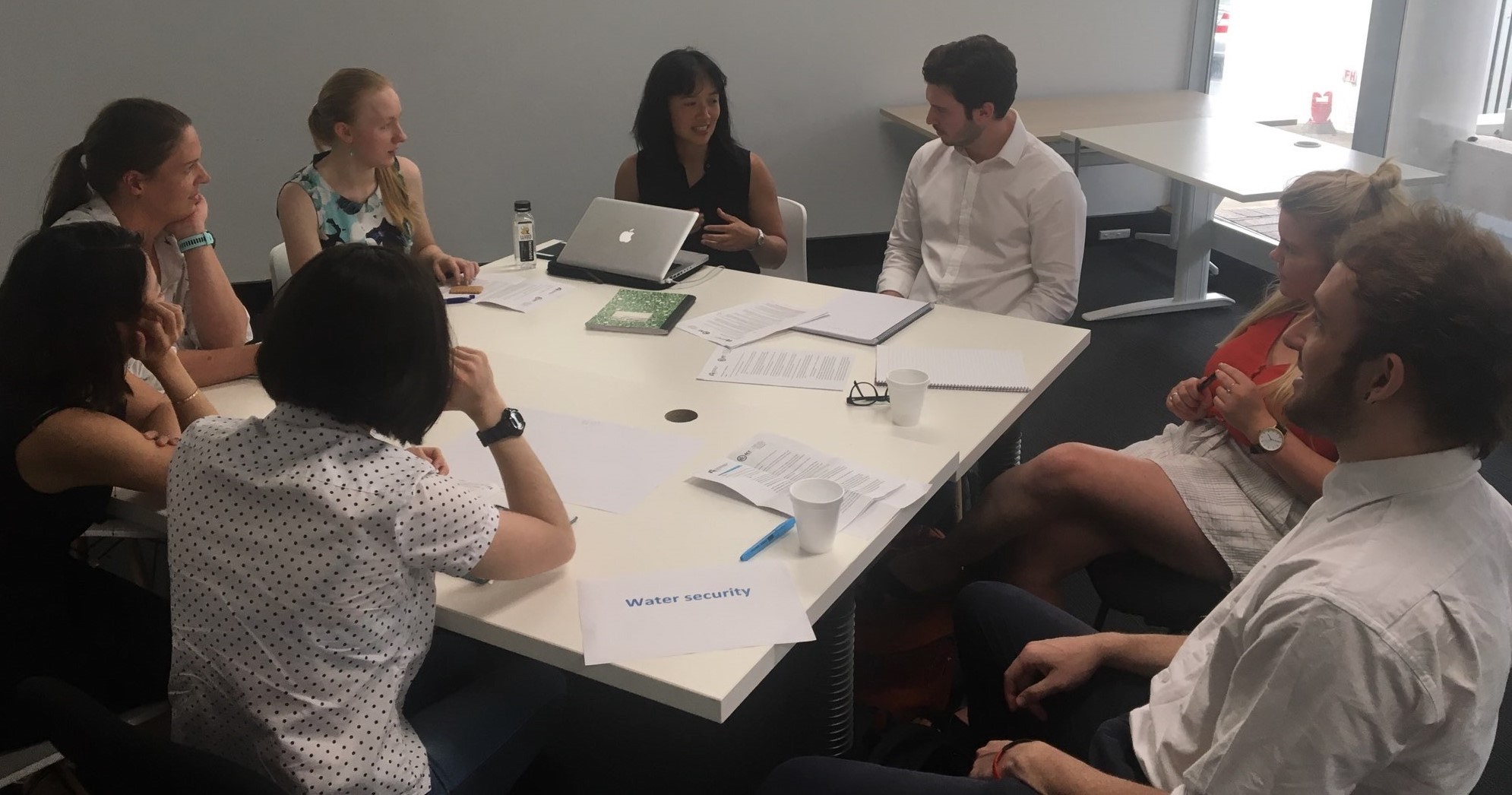by Zak Baillie It is February of 2032, and Canberra is living and breathing a warmed climate. Over summer, temperatures have climbed above 40 °C. Drought across south-east Australia has drained Canberra’s water supply, while bushfires burn the neighbouring national parks. Outdoor workers are sent home as commuters opt for air-conditioned private cars in favour of public transport, crowding roads and intensifying the urban heat island. The city is stretched. This was the hypothetical scenario given to 40 or so young professionals from a range of professional backgrounds (defence, engineering, finance, state/federal government, academia, medicine) who attended the Earth Systems and Climate Change (ESCC) Hub’s latest Young Professional event. Our task: knowing what we do now, what decisions can we make to lessen the impact of a warming climate? (A bushfire burning 8 km to the west of Canberra the day of the workshop had shrouded the city in a haze, making the dystopian hypothetical scenario all too real.) Attendees were split into four groups to discuss how different sectors may be impacted, and what could be done to adapt and manage each of these risks. They were: human health, the built environment, water security and economics. Each table also had a climate scientist (or a would-be, in my case) who was to contribute relevant, up-to-date science.
Naturally participants gravitated to the groups that complemented their background and this proved to generate rich and varied discussions – a participant remarked that this diversity was a real strength of the workshop. As emphasised by the capable facilitator Dr Nick Wood (chair of the ESCC Hub’s Stakeholder Advisory group), a collaborative effort will be required to minimise and manage the wide-ranging impacts of climate change. The event elegantly demonstrated this which, for me, was the chief source of its success. (Speaking to Nick afterwards, he noted that those at an early stage of the career often lack the professional network that is required to properly address the complex and multi-faceted problems they are working on. Getting a diverse bunch of people in a room together that ordinarily may not engage helps to expand their networks and relationships. For Nick, this was the primary aim of the event.) On my table (human health) sat two cardiologists, a mental health practitioner, an engineer, a justice worker, along with officers from the Department of Defence, ACT Government and the Federal Department of the Environment and Energy. Each brought their own perspective and each added a lot of value.
The event implored participants to consider the connectivity and interdependency of a lot of these risks. None could be tackled in isolation and there were often significant co-benefits to tackling one issue. Three hours isn’t a lot of time to prepare Canberra for the impending and real climate risks that it faces (and is already dealing with). It is however enough time to get an appreciation of the problem and to share that with those who may be managing these risks in the future. If that is the case, we’re in good hands. This event was a co-hosted by the ACT Government Environment, Planning and Sustainable Development Directorate, the Australian Government Department of the Environment and Energy, and the National Environmental Science Program (NESP) Earth Systems and Climate Change Hub. If you would like more information about this event or others like it you can contact Sonia Bluhm (Sonia.Bluhm@csiro.au). Sonia is a Knowledge Broker of the ESCC Hub.


